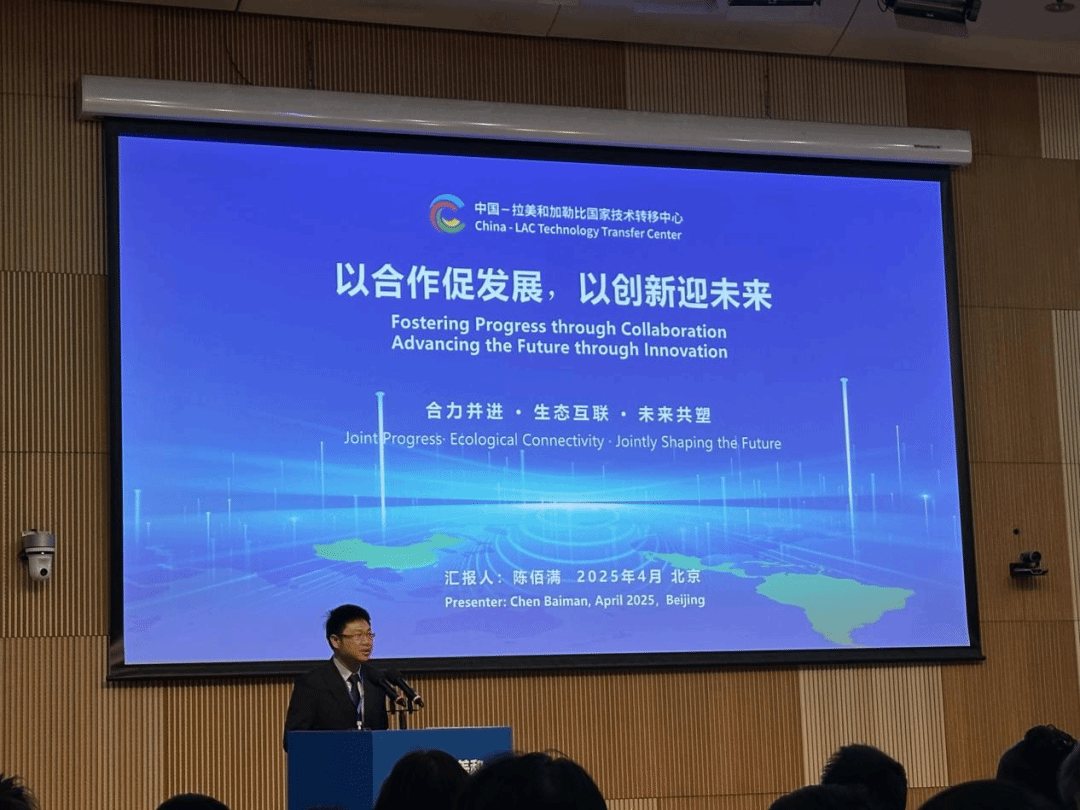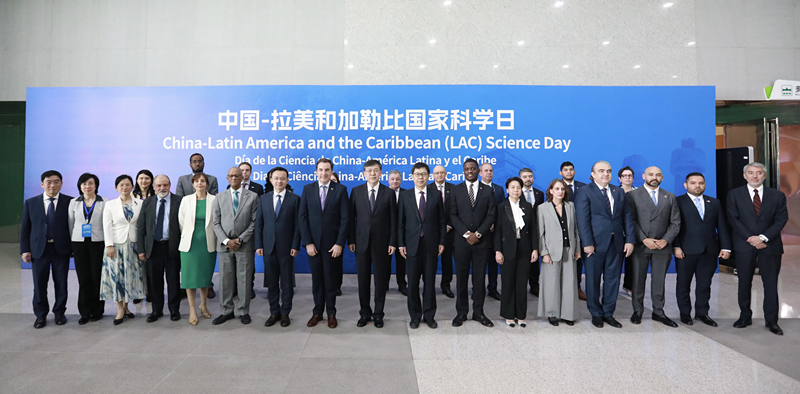On April 23, the inaugural China-Latin America and Caribbean Countries Science Day was held at the China Science and Technology Museum, organized by the Ministry of Science and Technology (MOST). Yin Hejun, Minister of Science and Technology, attended the event and delivered a keynote address. Representatives from the Ministry of Foreign Affairs, MOST, the China Association for Science and Technology, the Chinese Academy of Sciences, the Chinese Academy of Agricultural Sciences, and local science and technology authorities, as well as diplomats from the embassies of 21 Latin American and Caribbean (LAC) countries—including Argentina, Bolivia, Chile, Costa Rica, and Cuba—were present. Attendees also included representatives from China-LAC industries, universities, and enterprises. The China-LAC Technology Transfer Center (CLTTC) was invited to attend and gave a thematic presentation on recent outcomes and practical experiences in China-LAC cooperation.
Minister Yin Hejun stated that China attaches great importance to developing relations with LAC countries. Under the strategic guidance of head-of-state diplomacy, China-LAC science and technology cooperation has continued to advance in quality and scope, forming a multi-tiered and multi-sectoral cooperation network. Looking ahead, China will remain committed to the principles of openness, fairness, equity, and non-discrimination in international S&T cooperation, and uphold the concept that "science knows no borders and serves all humanity," while fostering a more open environment for scientific and technological innovation. He expressed hope that China and LAC countries will jointly establish close cooperation mechanisms, focus on areas of mutual interest such as agriculture, energy, artificial intelligence, and the digital economy, and advance the development of innovation platforms such as joint laboratories and science parks. He also encouraged more frequent and meaningful exchanges among scientists, particularly young researchers, from both sides.

In his presentation, Chen Baiman, Executive Director of the CLTTC, highlighted that the CLTTC is China's only comprehensive national-level technology transfer institution focused on Latin America and the Caribbean. Anchored in scientific and technological innovation, the center integrates resources from Chinese and LAC universities, research institutes, and enterprises to serve the nation's diplomatic strategy. It systematically builds a multidimensional technology transfer plus" cooperation ecosystem, gradually forming a full-chain service model encompassing country-specific research, resource matching, implementation support, and rights protection. The CLTTC is committed to providing professional support for China-LAC S&T cooperation by improving cooperation mechanisms and deepening practical collaboration.

The first China-LAC Science Day was held under the theme "Empowering Development through Science and Technology, Building a Shared Future through Solidarity and Cooperation." Zhang Run, Director-General of the Department of Latin American and Caribbean Affairs of the Ministry of Foreign Affairs, and Fernando Lugris, Dean of the Latin American and Caribbean Diplomatic Corps in China and Ambassador of Uruguay to China, delivered speeches. Hugo Siles, Ambassador of Bolivia to China; Anyin Choo, Ambassador of Guyana to China; and Carlos Humberto Larrea Dávila, Ambassador of Ecuador to China, along with ambassadors and chargés d'affaires from 15 LAC countries, attended the event. Experts shared the latest achievements and practical experiences in China-LAC cooperation, focusing on key areas such as life and health, agricultural technology, digital innovation, and biotechnology, as well as the development of collaborative platforms such as the China-LAC Technology Transfer Center and the China-LAC Sustainable Food Innovation Center.
This event effectively demonstrated the core positioning and significant achievements of the CLTTC, enhancing mutual understanding among stakeholders and laying a solid foundation for advancing high-quality China-LAC scientific and technological cooperation. Going forward, the CLTTC will continue to serve as a platform and bridge to promote cooperation and contribute to illuminating the "Global South moment" in global governance.


